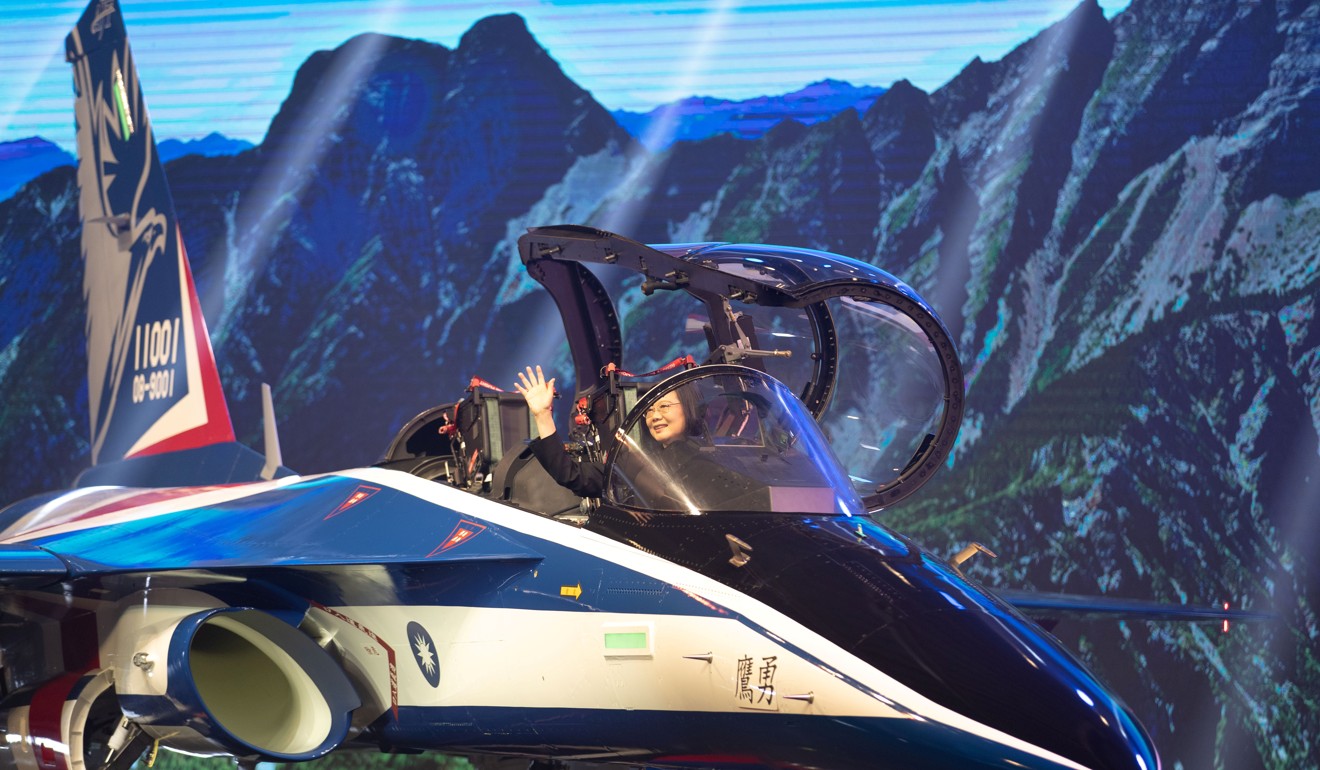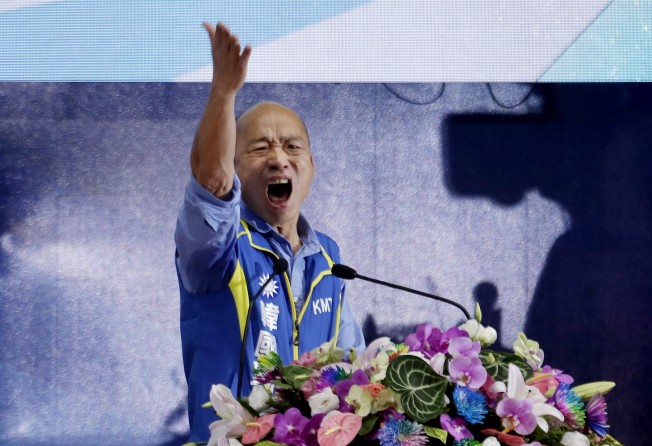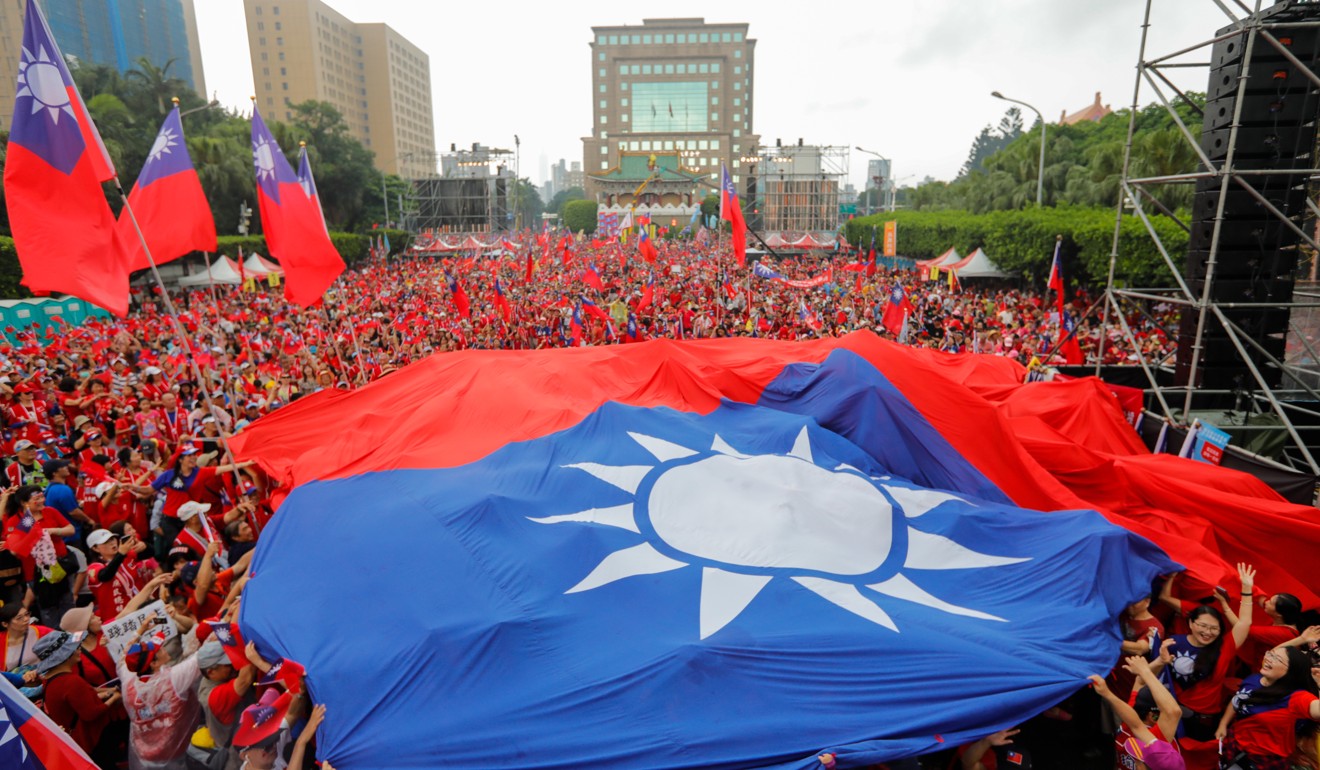
Taiwan’s KMT opposition tries to reassure US over defence policies it will adopt if it wins next year’s presidential election
- Mainland China-friendly party sends delegation to US-Taiwan Defence Industry Conference to signal to Washington that it will remain oriented towards Washington
- KMT stresses that if its candidate Han Kuo-yu wins next year’s contest the island will continue to be a ‘responsible partner for security’

Taiwan’s main opposition party Kuomintang has sent a high-profile delegation to the US-Taiwan Defence Industry Conference to try to reassure the Americans about the party’s security and defence policies if its presidential candidate Han Kuo-yu wins the upcoming election.
The annual conference, held by the US-Taiwan Business Council on Monday in Ellicott City, Maryland, has long been seen as an important occasion for senior officials and business leaders from the two sides to share their views on defence and related matters.
This year the mainland-friendly KMT made use of the occasion to promote the defence and foreign policies Han – who is challenging incumbent President Tsai Ing-wen of the independence-leaning Democratic Progressive Party – would adopt if the KMT returns to power after January’s presidential poll.
“The primary focus of our national defence and force building should be aimed at preventing [China] from making a decision to use force,” its representative Alexander Huang Chieh-cheng, chairman of the Council on Strategic and Wargaming Studies, said during a keynote speech.

Huang, a former vice-chairman of Taiwan’s Mainland Affairs Council which charts cross-strait policy, told American officials the KMT would refrain from being a “troublemaker in the region,” and would be “a responsible partner for security in the Indo-Pacific”.
Huang noted that the US has already positioned mainland China as a “revisionist power” in various strategy documents recognising the rapid expansion of mainland Chinese influence in areas such as diplomacy, economics, military and the internet over the past two decades.
“Today, the strategic environment of the entire Indo-Pacific region, including Taiwan, is shaped by the competition for dominance in global affairs between the two largest economies,” he said.
He said with cross-strait relations further deteriorating this year, Taiwan’s relations with the US have become warmer after the US Congress passed favourable legislation and new arms sales to the island were given approval.
Taiwan’s ties with the mainland turned sour after Tsai become president in 2016 and refused to accept the one-China principle, which is seen by Beijing as the political foundation for exchanges between the two sides.
Beijing, which considers Taiwan a wayward province that must return to the mainland fold by force if necessary, has staged a series of war games and poached seven allies from Taiwan since 2016 to try to force Tsai to accept the principle – but that only prompted Tsai’s government to lean further towards the US.
Though Washington has time and again said it would not meddle in Taiwan’s presidential election, all presidential candidates have been in the habit of what Taiwanese media describes as “reporting to the Americans” and assuring Washington their future policies would not stray away from the US.

The result of January’s presidential election will determine whether the island continues to move closer towards the US or will seek to improve relations with the mainland and will be viewed through the prism of increasing competition between Beijing and Washington.
Huang said if Han wins he would do all he could to protect the interests of the Taiwanese people, safeguard democracy and oppose the “one country, two systems” model proposed by mainland leader Xi Jinping for cross-strait talks under the one-China principle.
“If Mr Han Kuo-yu is elected president and the KMT returns to power next year, we will resolutely protect the common interests in the Indo-Pacific region, and defend our country and security in the Taiwan Strait,” Huang said, adding the KMT would invest thenecessary resources to “build a new armed forces that reassure our allies and partners, and bring peace of mind to our people”.
The Tsai government has sent its vice defence minister Chang Guan-chung, National Security Council deputy secretary general York Chen Wen-cheng and other officials and DPP legislators to the event.
Apart from Huang, the KMT delegation also included a former deputy defence minister, a former security attaché stationed in the US and KMT legislators.
The American attendees included David Helvey, principal deputy assistant secretary of defence for Indo-Pacific security affairs, and other US State Department and Defence Department officials, according to the organisers.
The conference addressed the future of US defence cooperation with Taiwan, defence procurement process and Taiwan’s defence and national security needs.
Organisers said the discussions also covered topics such as political warfare, cybersecurity, subversion and disinformation, potential naval and aerospace blockades, embargoes, government decapitation schemes and limited ballistic missile strikes.